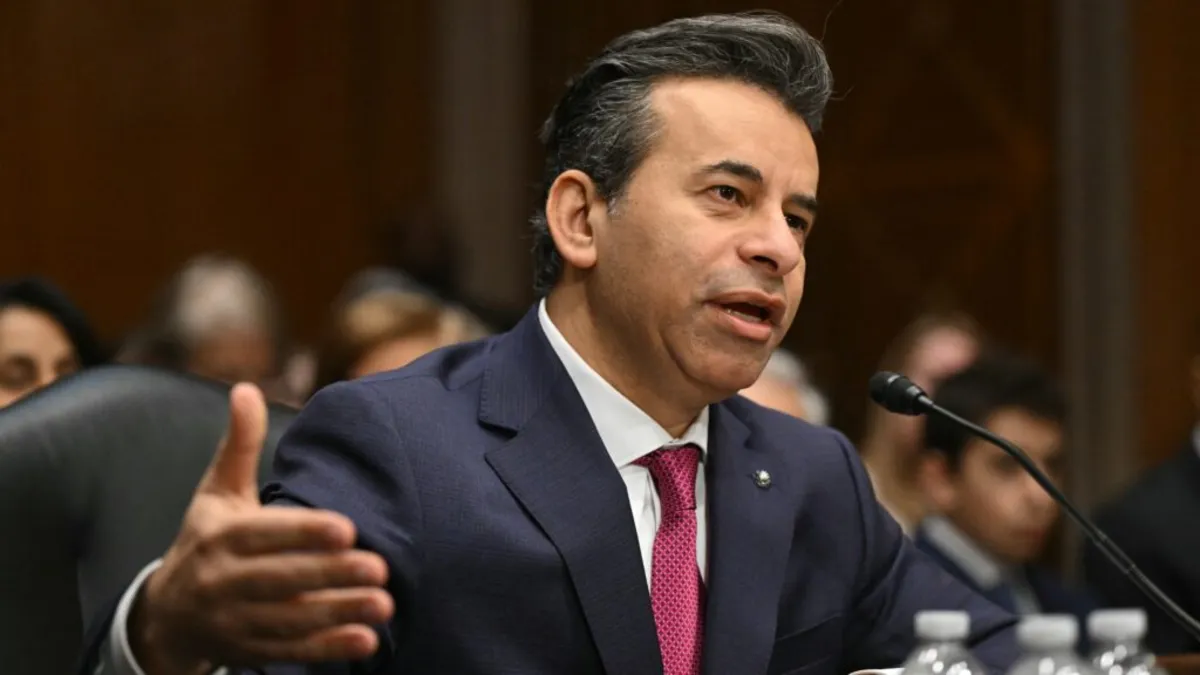
In a recent interview aimed at clarifying the federal government's stance on Covid-19 vaccines, FDA Commissioner Marty Makary provided limited answers, instead emphasizing the importance of consulting with healthcare providers. During his appearance on CBS News’ “Face the Nation,” Makary acknowledged the mixed data regarding Covid vaccines for healthy children and pregnant individuals, stating that vaccination decisions should be made collaboratively between patients and their doctors.
Makary did not hold back in his critique of the Centers for Disease Control and Prevention’s (CDC) independent vaccine advisory panel, labeling it as a “kangaroo court” that merely “rubber-stamps” every vaccine presented to them. This statement comes amidst recent actions by the Trump administration to restrict access to Covid vaccines, including plans by the FDA to limit their use to individuals aged 65 and older or those with specific risk factors. Notably, Health Secretary Robert F. Kennedy, Jr. has unilaterally retracted the CDC's recommendation for healthy children and pregnant individuals to receive Covid shots.
While many countries in Europe have halted recommendations for Covid vaccinations in healthy children, the U.S. has opted for decisions that have bypassed established regulatory processes, raising concerns among public health experts. These recent policy shifts may not completely restrict access to the vaccines but could influence insurance coverage for them. The withdrawal of vaccination recommendations for pregnant individuals has particularly alarmed health experts, as CDC data indicates that most babies hospitalized due to Covid infections were born to unvaccinated mothers. Additionally, Covid infection during pregnancy poses significant risks for expectant mothers.
In a commentary published in the New England Journal of Medicine, Makary and vaccine regulator Vinay Prasad included data indicating that pregnancy is considered a risk factor necessitating a Covid vaccine. However, when pressed by “Face the Nation” host Margaret Brennan about the inconsistency of removing vaccine recommendations for pregnant individuals just a week after listing them as a risk group, Makary cited the need for randomized controlled trials to provide clearer guidance. He avoided questions regarding who would conduct these necessary studies and when they might occur.
Makary advised parents contemplating vaccination for their six-month-olds—an age group previously eligible for Covid vaccines—to consult their pediatricians due to insufficient data regarding this demographic. He reiterated the importance of individualized discussions with healthcare providers, stating, “In the absence of data, they should talk to their doctor, and their doctor will use their best wisdom and judgment.”
Brennan further questioned Makary regarding the rationale behind issuing vaccination recommendations prior to the Advisory Committee on Immunization Practices (ACIP) having a chance to evaluate them. A subgroup within the ACIP recently indicated a shift away from universal recommendations for Covid vaccines, suggesting a focus on high-risk populations instead. The committee is poised to vote on this proposed change later this year.
Makary defended the FDA's recent policy changes by referencing the ACIP’s proposed risk-based approach. He contended that the panel has historically acted as a “kangaroo court,” merely endorsing vaccines without thorough evaluation. This sentiment echoed previous skepticism expressed by Kennedy towards the ACIP’s effectiveness.
The ACIP predominantly reviews vaccines post-FDA approval, often recommending narrower uses than what the FDA allows. For instance, while three RSV vaccines have been approved for individuals aged 18 and older at high risk, the ACIP has only suggested their use for those aged 50 and above due to safety concerns, including potential links to Guillain-Barré syndrome. Regulatory discussions around other vaccines, such as Gardasil 9 for HPV, have similarly highlighted the cautious approach of the ACIP.
As the landscape of Covid vaccinations continues to evolve, stakeholders will be closely monitoring both governmental and advisory committee actions to ensure public health is prioritized.